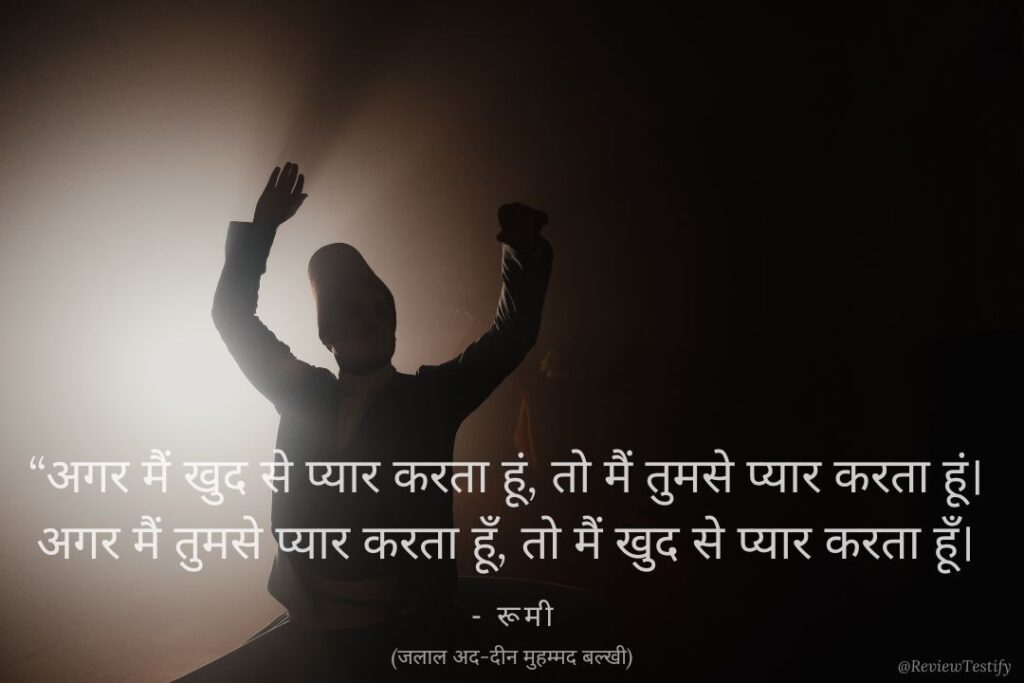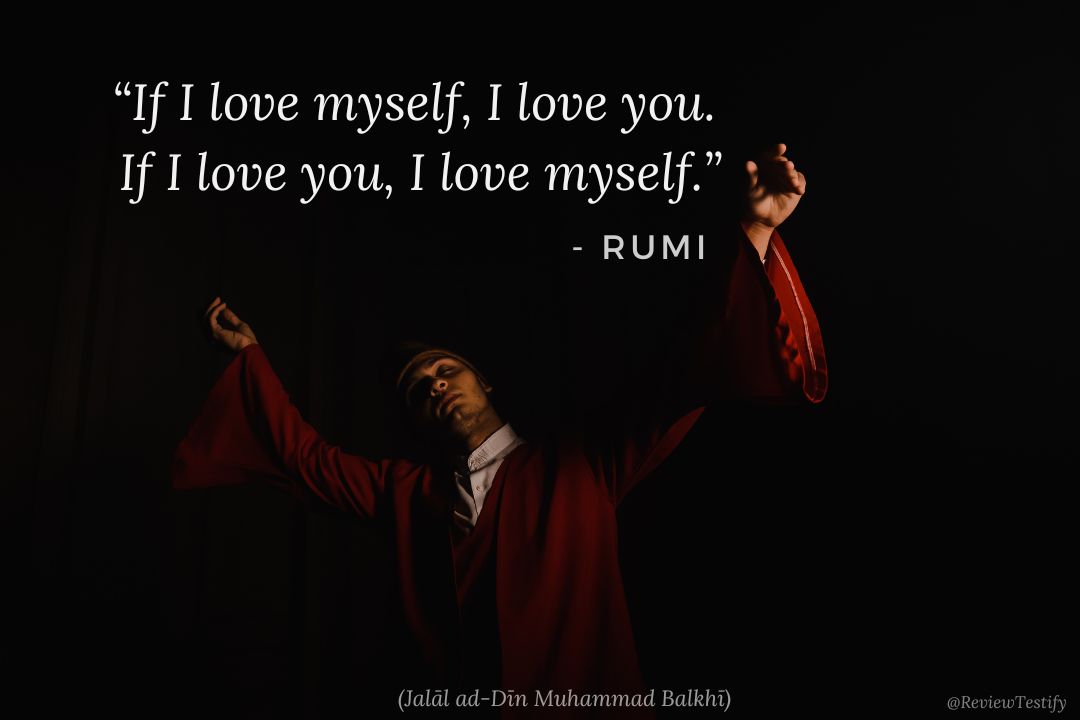“If I love myself, I love you. If I love you, I love myself.” – Rumi
A few words –
Rumi whose full name (Jalāl ad-Dīn Muhammad Balkhī) was a 13th-century Persian poet, scholar, and Sufi mystic. Had wrote lyrical poems and a spiritual epic called the Masnavi, which influenced many Muslim and non-Muslim thinkers. He founded the Mawlawiyyah order of Sufism, known for their whirling dance. He is widely regarded as one of the greatest poets of all time
In Easy words:
This quote expresses the idea that love is not a one-way relationship, but a mutual exchange of self-recognition and self-acceptance.
When we love ourselves, we acknowledge our true nature and value, and we extend the same respect and compassion to others.
When we love others, we see ourselves reflected in them, and we learn from their experiences and perspectives.
Love is not a matter of possession or attachment, but a state of being and becoming.
By loving ourselves and others, we grow and evolve as human beings.
In-Depth:
This quote reveals the profound wisdom and spirituality of Rumi, who was influenced by the teachings of Sufism, a mystical branch of Islam.
Sufis believe that the ultimate goal of life is to attain union with God, who is the source of all love and beauty.
To achieve this, they practice various methods of meditation, devotion, and ethical conduct, aiming to purify their hearts and souls from worldly desires and illusions.
One of the key concepts in Sufism is the idea of fana, or annihilation of the self, which means to surrender one’s ego and identity to the divine will.
Rumi’s quote suggests that by loving ourselves and others, we can transcend our limited and false sense of self, and realize our true essence, which is one with God and all creation.
Love is the path and the destination of the spiritual journey.
In Hindi: Translated by okhvicky
“अगर मैं खुद से प्यार करता हूं, तो मैं तुमसे प्यार करता हूं। अगर मैं तुमसे प्यार करता हूँ, तो मैं खुद से प्यार करता हूँ।
रूमी

❤️
Share, if it feels worthy enough! 🤳



